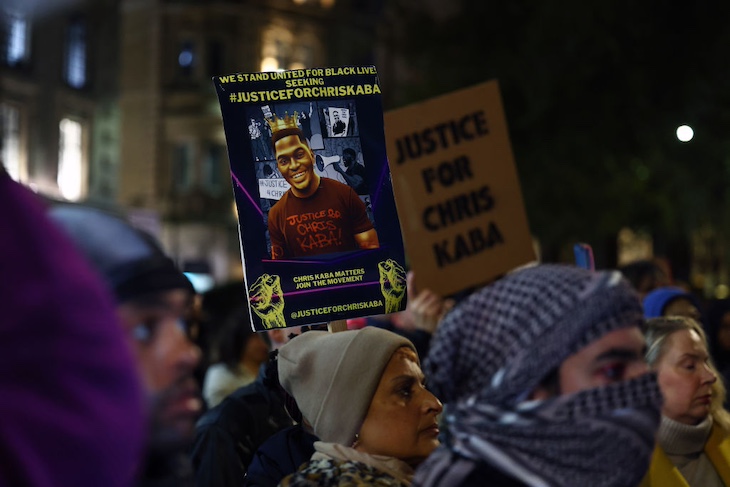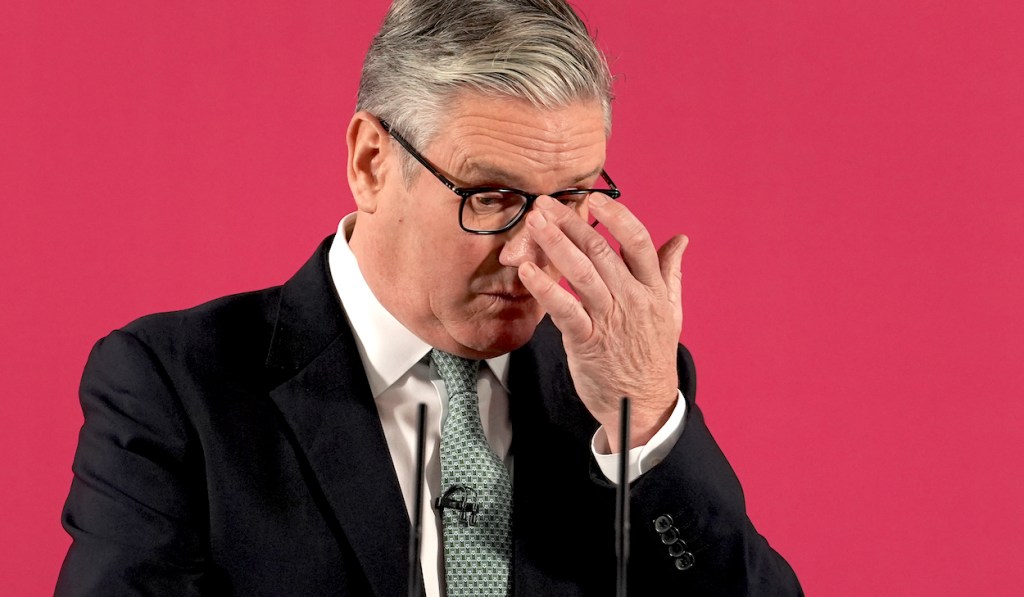Coverage of the death of Chris Kaba – and the acquittal of the police officer Martyn Blake tried for his murder – has raised more troubling questions about editorial decision-making at the BBC.
Kaba was shot dead during an armed vehicle stop in south London on 5 September 2022. Because Kaba was black, it appears the BBC’s commitment to achieving due impartiality succumbed quickly to the distorting lens of identity politics.
Anyone consuming only BBC coverage of the Kaba case would have likely assumed that he was just a talented young man who was ultimately the victim of a terrible injustice
When Kaba’s name emerged the day after the shooting, a BBC online article quoted loved ones of the 24-year-old drill rapper describing him as ‘funny’ and ‘super-kind’, an individual who would ‘do anything for you’ and a ‘good person’.
Inevitably, the spectre of racism was raised unchallenged, with the mother of Kaba’s fiancée claiming that had he been white, he would have been given ‘a chance to get out the car’. A local pastor said something needed to be done ‘to hold police to account’.
A BBC article published the following day again hailed Kaba’s ‘MOBO-nominated’ rap credentials. In a statement, the Metropolitan police, already on the defensive, said the force recognised ‘the devastating and lasting impact’ the incident would have.
A video of Kaba’s parents was also posted on the BBC News website that day. His distraught mother said her heart was broken, adding, ‘This is very racist, it’s no good.’ Kaba’s father said the police action was ‘totally racist and criminal’.
It is easy to understand why Kaba’s grieving family made statements such as these. We would not expect them to be impartial about the death of a loved one. But the Corporation did have a duty of impartiality. And by unquestioningly allowing the family to claim that Kaba was a victim of police racism, without giving due prominence to the other side of the story, they impugned the police officer who shot him.
Inevitably, three days later ‘large crowds’ had gathered outside the Met’s headquarters to join a Black Lives Matter protest over the shooting of Kaba. Already, an unmistakably one-sided narrative was being built: a good, kind, talented and funny young black man had been gunned down in his prime by a trigger-happy, racist copper who didn’t give him a fair chance to surrender.
We finally learned the truth this week. Police bodycam footage was released showing how Kaba ignored instructions from armed officers and put them at risk of serious injury or death by attempting to ram his way free of the squad cars that had his Audi boxed in.
Then details about Kaba’s life of violent crime and callous disregard for the welfare of others were made public, after attempts by his family to prevent reporting on this were successfully challenged by the police, who feared civil unrest if it remained under wraps.
The BBC reported these details with due prominence this week – but this doesn’t let the Corporation off the hook. From the day Kaba was identified, any journalist with an internet connection and an ounce of curiosity could have suspected he was no babe in the woods.
Before reporting restrictions during the trial of Blake prevented discussion of these facts, an article in The Spectator, for example, pointed out in September 2022 that an eyewitness had seen Kaba smash into a police vehicle with his car. As the article pointed out at the time, ‘We can’t say with absolute certainty that [the police officer] didn’t in some way act wrongly. But we certainly can’t say with any confidence that they did.’ Yet where was the BBC’s own caution before it jumped to conclusions about Kaba’s death?
Then there were Kaba’s own admissions, made in full public view in his drill videos. ‘F*** around and get smoked’ Kaba, or ‘Itch’, declares at the opening of the video for ‘Bruk It’, his fingers miming a gun pointing at the viewer as he raps about breaking a ‘brick’ of narcotics down. ‘Splash, splash and get cash,’ he chants later in the song (‘splash’ being drill jargon for stabbing somebody).
Yet anyone consuming only BBC coverage of the Kaba case would have likely assumed that Kaba was just a talented young man who was ultimately the victim of a terrible injustice.
Take, for instance, the episode of ‘1Xtra Talks with Richie Brave’ broadcast on the first anniversary of Kaba’s death. This radio programme remains on the BBC Sounds website and is a perfect illustration of the Corporation’s inability to be even-handed when it comes to addressing crime in the black community.
Brave gave a preamble about how the ‘history of police brutality’ would be among the topics covered, then read a comment posted on X that claimed the Met was ‘not fit for purpose’; suggested Kaba’s death was ‘pre-meditated murder’; and insinuated that the rapper’s watch may have been stolen by the police. So far, so skewed.
Next, a BBC reporter gave the background to the shooting complete with a sympathetic commentary in which he claimed, without citing any evidence, that Kaba was ‘turning his life around’.
With risible understatement, the reporter conceded that Kaba was ‘no angel’ but went on to make the egregious claim that ‘it could have been any young black man behind that wheel’. Of course, the car Kaba was driving was stopped because it had been linked to the shooting in Brixton the previous day.
Even on the day Sergeant Martyn Blake’s murder charge was promptly dismissed by a jury at the Old Bailey, the BBC maintained the victimhood narrative. Only three lines into its online report, came a claim from Kaba’s family that the verdict was ‘painful proof that our lives are not valued by the system’. A campaigner for the ‘Justice for Chris’ group was quoted as saying, ‘No one can be safe while the police can kill with impunity.’
When the dam finally broke with the lifting of reporting restrictions, Kaba was exposed for what he was: a ruthless, anti-social, ultra-violent gangster who among his many crimes had shot a rival in a nightclub only days before his death. So much for ‘turning his life around’.
Police described Kaba as a ‘core member’ of the Brixton Hill-based 67 gang, linked to shootings, stabbings and murders. Even at this stage, when it was crystal clear Kaba was a nasty piece of work, the BBC commissioned an article claiming black communities in south London had been ‘really traumatised’ by the ruling and felt they had been ‘denied justice’.
Reflecting on the reporting of the recent anti-immigration riots, and comparing this to the Chris Kaba coverage, it is difficult not to conclude that the BBC is guilty of a two-tier editorial policy, one that castigates white bigots whilst diminishing the wrongdoing of black gang members.
One can only hope BBC editors reflect on whether perpetuating the soft bigotry of black victimhood really serves the community, or simply enables the Chris Kabas of this world to flourish, knowing the police have the state media as well as the gangs of London against them.







Comments